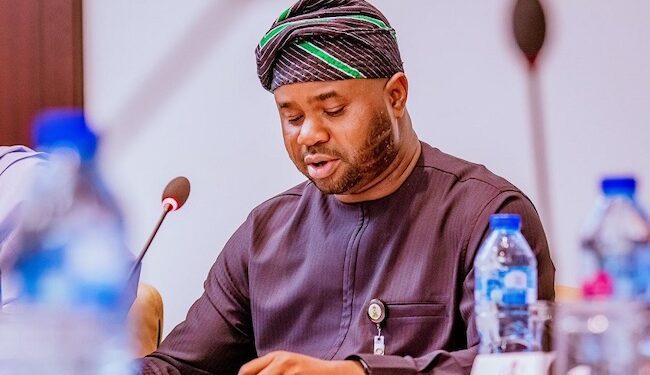Nigeria’s federal revenue surged to N3.65 trillion in September 2025, marking a staggering 411% increase from the N711 billion recorded in May 2023 when the current administration assumed office.
The announcement was made by Dr. Zacch Adedeji, Executive Chairman of the Federal Inland Revenue Service (FIRS), during a briefing with State House correspondents in Abuja.
Adedeji attributed the revenue growth to sweeping fiscal reforms and enhanced compliance mechanisms.
He emphasized that the transformation reflects a strategic shift in Nigeria’s revenue architecture, particularly the rise of non-oil income streams.
Sectoral Performance Signals Broader Reform Impact
Non-oil revenue climbed from N151 billion in May 2023 to N1.06 trillion in September 2025, a 599% increase, underscoring the country’s progress toward economic diversification.
Oil revenue also posted significant gains, rising from N96 billion to N644 billion over the same period. Value Added Tax (VAT) collections tripled, reaching N723 billion from N218 billion, a development Adedeji said was driven by stronger compliance and improved efficiency across key sectors.
The Nigerian Upstream Petroleum Regulatory Commission (NUPRC) saw its revenue jump to N745 billion from N125 billion, while the Nigeria Customs Service (NCS) recorded N322 billion, up from N106 billion.
Between January and August 2025, FIRS collected a total of N20.62 trillion in tax revenue, representing a 40.8% increase compared to the same period in 2024. This performance not only exceeded the agency’s baseline growth target of 16.4% for the year but also set the stage for achieving the federal revenue target of N25.2 trillion by year-end.
Reforms Reshape Nigeria’s Tax Landscape
Adedeji credited the revenue surge to targeted reforms that streamlined tax processes, reduced burdens on small and medium-sized enterprises (SMEs), and introduced digital compliance tools such as e-invoicing and updated excise regulations.
He revealed that a presumptive tax regime is in development to capture hard-to-tax sectors, while efforts are underway to harmonize state-level levies to broaden the national tax base.
“Our goal is to build a fair, efficient, and sustainable tax system that supports growth and boosts investor confidence,” Adedeji stated. He also confirmed that unbacked Ways and Means advances from the Central Bank have been discontinued. These loans have now been reclassified as federal debt, with both principal and interest being repaid, a move aimed at stabilising exchange rates and reinforcing fiscal discipline.
Borrowing Strategy and Future Outlook
Addressing concerns about government borrowing, Adedeji emphasised that debt, when properly legislated and directed toward infrastructure, is a vital tool for economic sustainability. “Borrowing funds for infrastructure that generates future tax revenues from beneficiaries. This is a sustainable approach for long-term development,” he explained.
Looking ahead, Adedeji announced that comprehensive reforms to Personal and Company Income Tax will commence in January 2026. These changes are expected to further expand Nigeria’s revenue base and enhance fiscal resilience in the face of global economic shifts.
What You Should Know
- The latest report is coming days after FIRS issued a directive mandating strict compliance with withholding tax regulations on interest earned from short-term securities to avoid the imposition of penalties.
- The notice, signed by FIRS Executive Chairman Zacch Adedeji, was addressed to banks, discount houses, stockbrokers, corporate bond issuers, primary dealer market makers (PDMMs), financial institutions, government agencies, tax practitioners, and the general public.
- The directive reinforces provisions under Sections 78(1) and 81(1) of the Companies Income Tax Act (CITA), as amended, and the 2024 Withholding Tax Regulations.
















